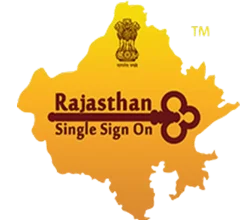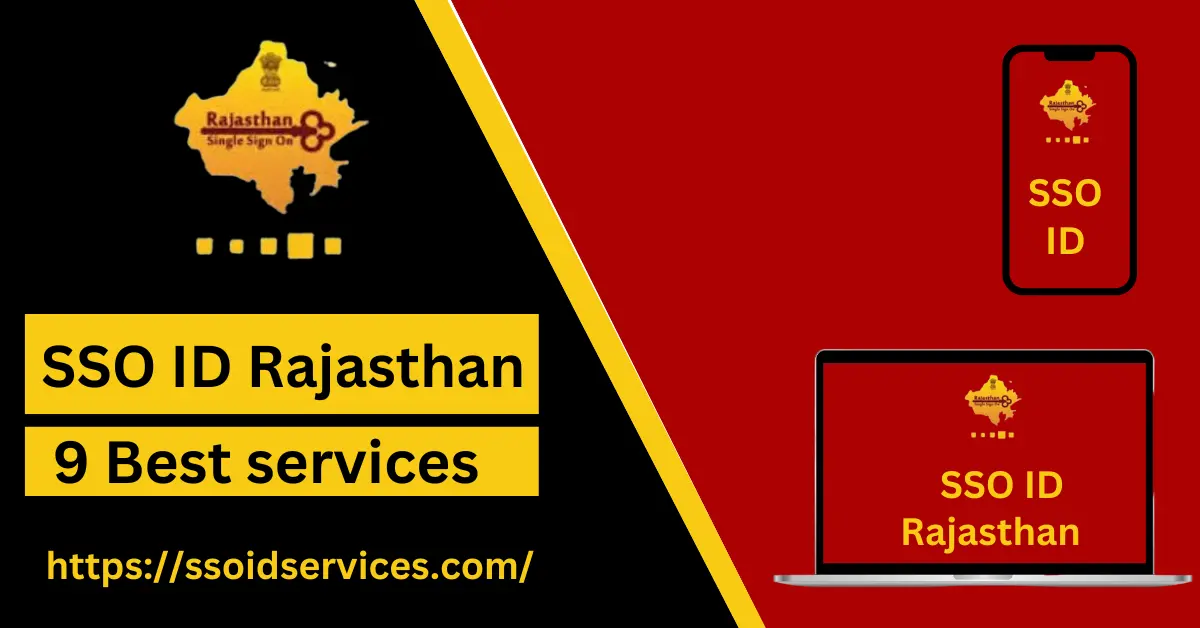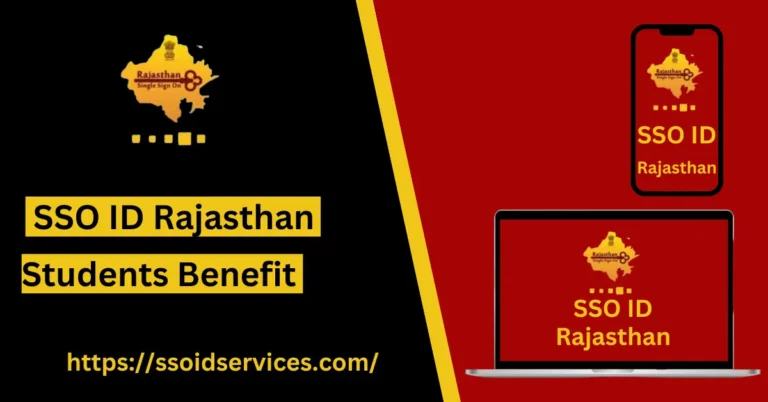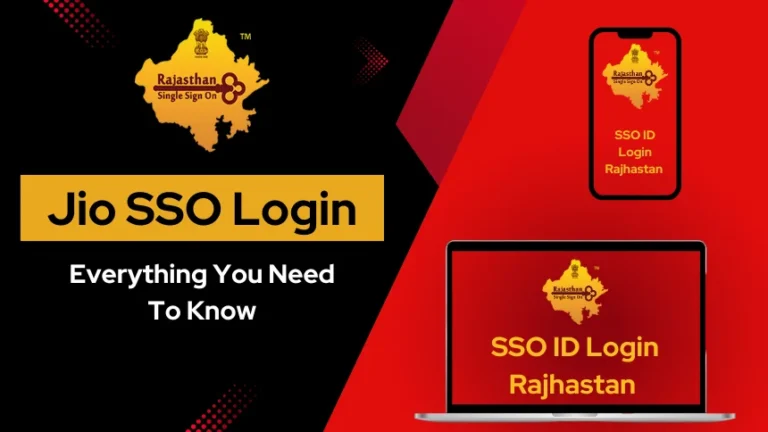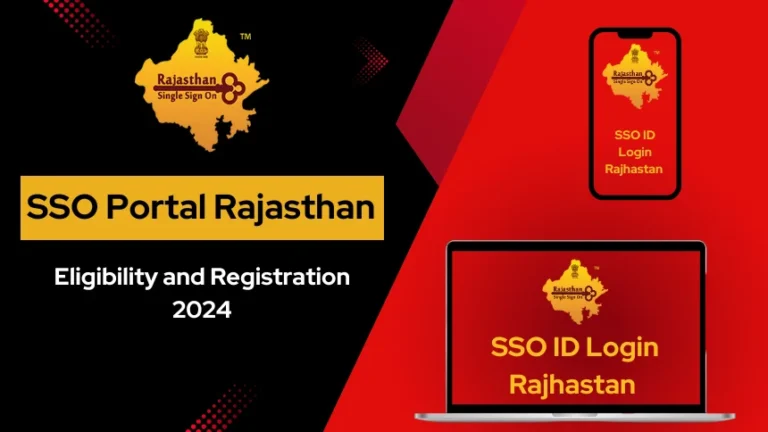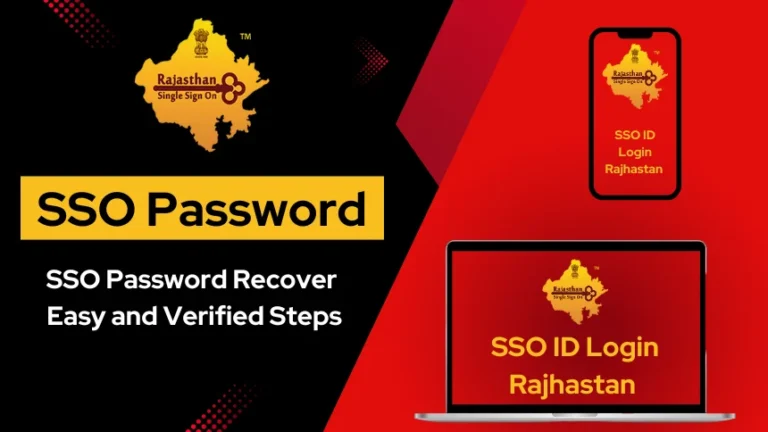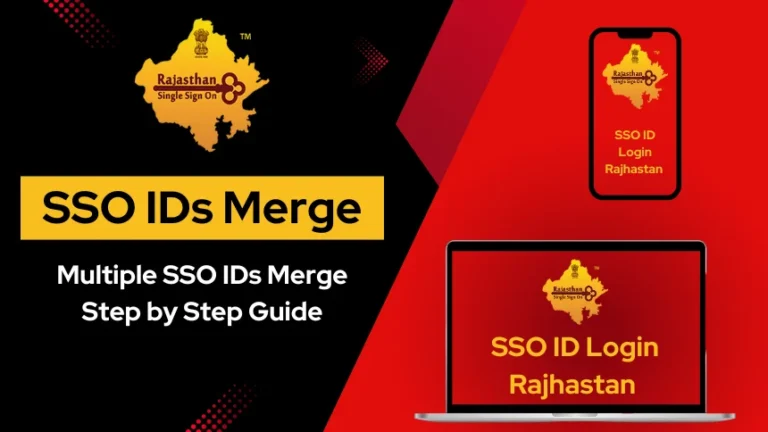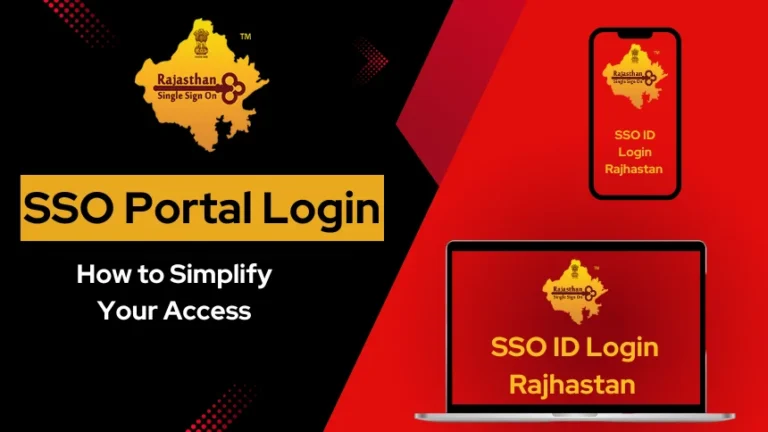9 Best services Provides by SSO ID Rajasthan
9 Best services: Over the past few years, Government of Rajasthan have made major strides towards digitalizing their services. They are doing this to increase accessibility and improve efficiency. Single Sign-On ID Rajasthan is at the forefront this digital revolution. It serves as a gateway for many government services. This article explores SSO ID Rajasthan’s various services, including the main factors influencing their implementation, along with the difficulties faced and the general impact of the platform on the people in the state.
Also Read: SSOID Rajasthan Login Step-by step Guide for Login SSOID Rajasthan
9 Best services SSO ID Rajasthan: Services and Benefits
SSO ID Rajasthan works in a certain way. Before diving deeper into services, we must first understand how the system functions. SSO ID Rajasthan provides a centralized system of authentication that allows access to multiple government services by using just one set of credentials. This system automates the process for accessing different e-government services. It eliminates multiple usernames, passwords.
Also Read: The Benefits of an SSO Identification in Rajasthan
Site Offers Key Services
1- E-Mitra Services
E-Mitra was one of SSO ID Rajasthan’s first flagship projects. It provides a one-stop solution for various government-to-citizen (G2C) and business-to-citizen (B2C) services. E-Mitra kiosks allow access to services, such as:
- How to pay your bills
- Issue of certificates (birth certificate, death certificate, caste or income certificate)
- License renewals
- Pensions-related Services
This integration has reduced significantly the effort and time needed to obtain these services.
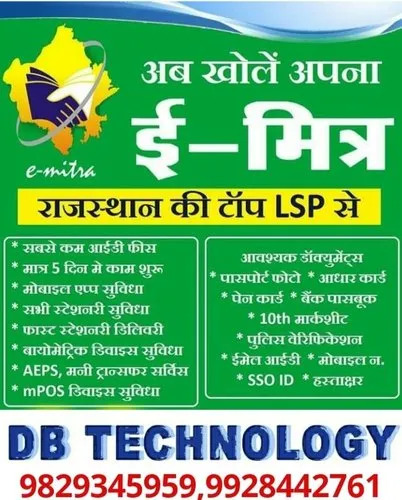
2- Bhamashah Yojana
Bhamashah yojana, a financial inclusion initiative for women. SSO ID allows Bhamashah users to view information on their accounts, change personal information, and receive various benefits.
3- RAJSSO
RAJSSO is a single sign-on system that allows access to a multitude of departmental apps, including applications related to health care, education, social welfare and more. This integrated system allows users to easily access multiple services and websites without having the hassle of remembering different login details or navigating through several sites.
Employment Services
SSO ID is a platform that offers various services for job seekers. This includes:
- Registering for Job Exchanges
- Access to Job Notifications
- Skill development program registrations
- Career counseling services
In centralizing this service, the government hopes to reduce the distance between job-seekers and employers.
E-Learning and Education Portals
SSO ID is a great way for students, educators and parents to access educational resources. They include online learning platforms as well digital libraries and examination portals. This integration helps to streamline academic services for students as well as institutions.
Health Services
SSO ID offers a range of healthcare services, including:
- You can book appointments at Government hospitals online.
- Access to medical records
- Telemedicine consultations
- Registration for the Health Insurance Scheme
These services were particularly helpful during the COVID-19 outbreak, providing continuity of care while minimizing contact.
Agriculture and Land Records
Farmers and landowners have access to vital services, including:
- Crop insurance application
- Subsidy Disbursements
- Verifications of land records
- The Soil Card Service
Through the digitalization of these services, government wants to give farmers timely and relevant information.
Business and Industry Services
SSO ID is a way for entrepreneurs and owners of businesses to easily access the services they need to register their business, obtain licenses, or get permits. A single-window process simplifies managing and starting a Rajasthan business.
Transport Services
SSO ID’s platform integrates services related to transport, including vehicle registration and licensing, as well as payment for road tax. This integration makes it possible for citizens to handle all of their transport needs in a streamlined manner.
Significant factors that impact service delivery
Digital Literacy
The digital literacy of the populace is crucial to the success of any digital service. Urban areas may have higher rates of adoption, but rural regions are still facing challenges because they lack digital skills.
Internet Connectivity
It is important to have reliable internet connection in order to access online services. However, the challenges of remote areas persist despite government efforts to improve Internet infrastructure.
User Interface and Experience
SSO ID design and functionality play a key role in service acceptance. The design of the interface is important in encouraging citizens to adopt digital services.
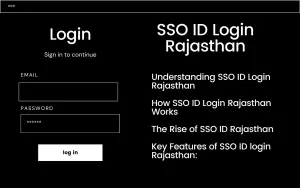
Security and Privacy in Data
As services move online, the importance of ensuring data privacy and security increases. In order to maintain trust in the government, robust cybersecurity must be implemented.
Legacy Systems and Integration
Many government agencies still rely upon legacy systems. For efficient service provision, seamless integration between these systems and the SSO ID platform will be crucial.
Challenges and tradeoffs
Digital Divide
In order to overcome the digital divide, we must bridge it between urban and countryside. The digital world offers convenience but it can inadvertently exclude some people.
Language Barriers
Rajasthan is an extremely diverse state in terms of its languages. It’s important that the services be available in your local language to encourage wider adoption. However, this is a resource-intensive task.
Cybersecurity Threats
With the increasing number of services available online, cyberattacks and breaches of personal data are becoming more common. A constant challenge is to find a balance between ease of accessibility and robust security measures.
Costs for Infrastructure
Developing and maintaining a digital infrastructure necessary for SSO ID involves substantial costs. Government must weigh these costs against other priority development projects.
Training and Support
For digital services to be successful, it is important that government employees are continually trained and citizens receive support. This will require ongoing investments in human resources.
The trade-offs when balancing different factors
Security or convenience? Convenience
The implementation of strong security measures like two-factor authentication (2FA) and frequent password updates can increase data protection. However, it may require additional steps from users. Logging in more quickly can be convenient for the user, but may compromise security.
Complicated User Interfaces vs. Functionality
While a simple interface may make it easier to operate, some users might find that they lack certain advanced features. A rich interface is more complex and can make users feel overwhelmed.
Performance or accessibility? Performance
Ensure that SSO ID works on all devices and internet browsers. This can compromise performance. Optimizing the performance of certain devices can cause compatibility problems.
It is Important to Consider Impact
User Satisfaction
SSO ID systems that are well designed and work efficiently can increase the user’s satisfaction because they provide easy access to various services. The success of any platform depends on a great user experience.
Government Efficiency
The streamlined access to service can enhance administrative efficiency and ease the burden of government offices. Better resource allocation is made possible, as well as more efficient and effective service delivery.
Digital inclusion
In order to achieve digital inclusion, it’s important that every citizen, regardless of his or her technical ability, is able to access and use the SSO ID. This can be accomplished by offering support and providing training.
Future Perspectives & Considerations
Emerging Technologies
The integration of newer technologies like blockchain, artificial intelligence or even the use of AI could improve security as well as service.
Mobile-First Approach
As smartphones become more prevalent, adopting an approach that puts mobile devices first could improve accessibility to services.
Public-Private Partnerships
The collaboration with private entities can improve the efficiency of service delivery, and share financial burden.
Users’ Feedback – Continuous
Surveys and regular feedback from users will help to continuously improve the service.
Platforms National Platforms: Interoperability
It is crucial to integrate services seamlessly by ensuring interoperability across digital platforms at national levels, like DigiLocker UMANG and DigiLocker.
Conclusion
SSO ID Rajasthan is a great step for digital governance. A centralized portal for a broad range of government service access has the ability to revolutionize the relationship between citizen and government. But the success of this project depends on key challenges like the digital gap, cybersecurity, or continuous improvements to the system.
Rajasthan will refine and extend its digital offerings, and it’s vital to keep a balanced between the technological innovations and inclusivity. SSO ID Rajasthan will benefit all sectors of society if the state focuses on user-centric features, comprehensive security programs and digital literacy.
SSO ID Rajasthan’s platform is an excellent model that can be used by other states as they continue their own journey toward digital governance. In the future, as technology develops, the available services will evolve too, providing a connected, efficient and more effective world for Rajasthan citizens.
FAQs
How can I register for an SSO ID Rajasthan account?
SSO ID Rajasthan (Single Sign-On ID) is a centralized system of authentication that enables users to use a single password and login information for multiple government services. This system eliminates the need to use multiple login credentials and streamlines the process for accessing different eGovernance services. The SSO ID portal allows users to access services across different departments once registered.
What services can I access through SSO ID Rajasthan?
E-Mitra services (bill payments, certificate issuance, license renewals, etc.)
Employment-related services (job notifications, skill development programs, etc.)
Educational services (online admission, scholarship applications, results, etc.)
Healthcare services (online appointment booking, medical records access, telemedicine, etc.)
Agriculture and land records (crop insurance, subsidy disbursements, land verification, etc.)
Business and industry services (business registration, licenses, permits, etc.)
Transport services (vehicle registration, driving license applications, road tax payments, etc.)
What are the key challenges in using SSO ID Rajasthan?
Digital Divide: Ensuring accessibility for both urban and rural populations with varying levels of digital literacy.
Internet Connectivity: Reliable internet access is crucial for using online services, which can be problematic in remote areas.
Security and Privacy: Protecting user data and maintaining robust cybersecurity measures to prevent breaches.
Integration with Legacy Systems: Ensuring seamless integration of older government systems with the new digital platform.
Language Barriers: Providing services in multiple local languages to cater to the diverse linguistic population of Rajasthan.
How does SSO ID Rajasthan enhance government efficiency and user convenience?
SSO ID Rajasthan enhances government efficiency and user convenience by:
Centralized Access: Users can access multiple government services with a single login, reducing the need for multiple accounts and visits to various government offices.
Streamlined Processes: Digitalization of services speeds up administrative processes and reduces paperwork, leading to quicker service delivery.
Transparency and Accountability: Digital records increase transparency and reduce opportunities for corruption.
User Satisfaction: Providing easy access to services from home or local kiosks saves time and effort for citizens, improving their overall experience.
Data-Driven Decisions: The platform generates valuable data that helps the government make informed policy decisions and allocate resources more effectively.
